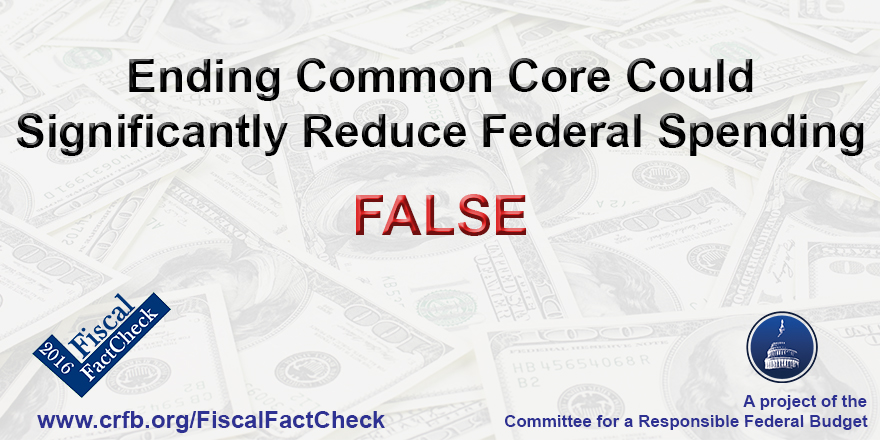Could Ending Common Core Significantly Reduce Federal Spending?

Common Core was developed by state governors and state education commissioners and is now exclusively funded by the states. The federal government once had a nominal role in funding Common Core by considering participation as one factor among many for determining eligibility for Race to the Top Grants, and as a basis for granting conditional waivers from No Child Left Behind penalties.
As of December 2015, the federal government no longer provides even this nominal support for Common Core participation. Congress passed the Every Student Succeeds Act in December of 2015, which made the No Child Left Behind Act obsolete and prohibits the Department of Education from using federal funds to encourage states to use Common Core standards specifically (though they could still choose to use them). The Race to the Top program awarded its last grant in 2013, and President Obama has not requested funding in his last two budgets. Congress last gave the program $250 million in the FY 2014 budget to pay for the final grants that were awarded, though outlays for Race to the Top will continue until previously issued grants expire. Lawmakers would have significant difficulty cancelling grant money that has already been allocated.
States on the other hand are bearing the cost of developing the Common Core curriculum and putting it into effect. One education group, Ed Week, estimates that states will currently spend a total of about $4 billion implementing Common Core over several years. But of course, eliminating this spending could not pay for federal tax cuts.
So even if the Common Core program was eliminated entirely, the federal government would not receive any fiscal benefit and its elimination could not meaningfully reduce government spending or pay for expensive tax cuts.
Ruling: False


